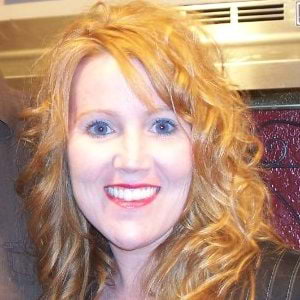Corporate Education: Bringing it Home

UCI Corporate Education creates custom virtual programs that reach thousands of workers worldwide.
Educating a global workforce can be challenging during the best of times. But when the business world shifts to a work-from-home model virtually overnight, it becomes more urgent and daunting than ever – especially for companies that need to train thousands of employees around the world.
With the COVID-19 pandemic raging, biotechnology giant Thermo Fisher Scientific turned to UCI Corporate Education and Global Partnerships, a longtime provider of university-level courses for the company. The mission was clear: Online curriculum needed to be modified and expanded to accommodate 2,000-plus employees located in 16 countries.
“Within one day, our travel had been restricted company-wide, plus our instructors were not feeling comfortable traveling,” said Heather Virdo, head of Thermo Fisher Scientific’s Marketing University. “But we had a natural solution. We have had virtual training as part of our regular calendar for years, so the transition was simple. We had to work with UCI to set up the new logistics and cancel the onsite logistics.”
No one is ever really prepared for a pandemic emergency, but UCI and Thermo Fisher Scientific were well-positioned for a rapid response, transitioning onsite courses and modifying and expanding online classes. Thermo Fisher Scientific had been working with UCI for nearly a decade, and the university is a leader in online corporate education.
The company needed to keep its employees well-trained and connected so it could continue moving forward during the pandemic and, most importantly, advancing their work on biotech developments and COVID-19 testing.
Partners in online education
UCI's Corporate Education and Global Partnerships specializes in experiential training, with group activities and exercises similar to on-campus courses. Programs are offered in various formats: individual courses, Massive Open Online Courses (MOOCs), even university-accredited certificate programs – an option that Thermo Fisher Scientific found to be a perfect fit.
In 2011, the multinational biotechnology product development company partnered with UCI to develop an Integrated Marketing Specialized Studies certificate program for their marketing professionals. Many of them were scientists by training and had limited marketing experience, so there was a need to upskill the workforce through expert training.
The UCI marketing courses have been a clear success, with measurable, highly effective knowledge transfer and strong student feedback. But travel logistics were becoming impractical for onsite instruction even before the pandemic hit.
UCI had been flying instructors to locations across the U.S., Japan, China, Australia, Scotland, and more. Employees often had to travel to attend classes, which were becoming cost prohibitive, with the company paying for both instructors and employees to travel.
To reduce costs and accommodate more of their global workforce, Thermo Fisher Scientific opted for increased online training. At the same time, they wanted to maintain classroom interaction, a live exchange of ideas. UCI met this need with custom delivery systems tailored for Thermo Fisher Scientific’s employees.
So when COVID-19 shut down much of the world, it required some urgent, if modest, adjustments. The programs already in place did not have to be overhauled in any significant form, other than being made more widely available to a rush of new employees working from home, Virdo said.
“Most of our curriculum has already been offered in a virtual setting, so the content was broken into manageable chunks, with hands-on activities that vary slightly from the previous onsite curriculum,” Virdo said.
The transition has turned out to be a success by any measure. And further innovations are in the works to make virtual classroom interactions even more effective, tailored to mirror an onsite experience as closely as possible.
“Other than selling out by more than double for every course, nothing much is different,” Virdo said. “We saved money company-wide on travel and onsite services. We’ve also been working with UCI designers to ‘beef up’ our Virtual interactions and improve the experience, since we may have to shift the remainder of the calendar year to virtual offerings.”
Smaller breakout rooms are being developed, along with more video content to reinforce the course material and break up the lectures. “Also, we’ve started assigning new pre-work and ensuring that more live class time is used for group work and meaningful interactions with our instructors,” Virdo added.

A global classroom
Thermo Fisher Scientific employees have been gathering in virtual breakout rooms with team members from all over the world, mainly through Zoom and Canvas platforms. The curriculum is offered entirely in live, synchronous virtual sessions – quite a logistical challenge with an international workforce.
Each team might have members located in Singapore, Oregon, or Brazil, and they interact just like they would in a real classroom–they raise their hands and have access to white boards. Live interaction between students and instructors is a key part of the experience.
“All of our online courses are in real time,” Virdo said. “We schedule them to reach either our Asia-Pacific partners or our employees located in North America, Europe, Middle East and Africa on all coasts. We also ensure that there is a minimum of one week between courses to accommodate any homework”
The student feedback has been extremely positive, with near-perfect satisfaction ratings. Modifications are being made to accommodate growing participation in courses such as Agile Marketing, Digital Marketing, and Marketing Strategy Simulation.
“As I mentioned before, we are more than doubling our attendees,” Virdo said. “In fact, we added a second session for one of the courses due to high demand. And as far as participant feedback, our courses, even in a virtual setting, average higher than a six on a scale of zero to seven.”
Learn more at Corporate Education.
